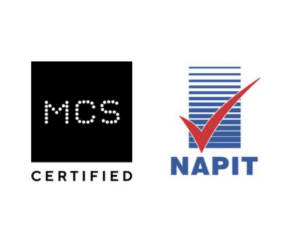Table of Contents
ToggleIntroduction
Solar energy has emerged as a vital component of the UK’s renewable energy landscape, offering sustainable solutions to combat climate change and reduce reliance on fossil fuels. With the pressing need to transition towards cleaner energy sources, the UK government has implemented various tax incentives to encourage the adoption of solar technologies. In this article, we’ll delve into the tax incentives available for solar installation in the UK, examining how they contribute to the growth of solar energy and benefit both individuals and businesses.
Feed-in Tariff (FIT) Scheme
The Feed-in Tariff (FIT) scheme stands as one of the cornerstone incentives for promoting solar installation in the UK. Introduced in 2010, the FIT scheme aims to incentivize the generation of renewable electricity by offering financial rewards to households and businesses that generate their own electricity through solar panels and other renewable sources. Under the FIT scheme, participants receive payments for every kilowatt-hour (kWh) of electricity generated, regardless of whether it’s used onsite or exported to the grid. Additionally, participants receive an extra payment for surplus electricity exported to the grid, further enhancing the financial benefits of solar installation.
To qualify for the FIT scheme, installations must meet certain eligibility criteria, including using approved products and installers, and adhering to size limits. While the government ceased new applications for the FIT scheme in 2019, existing participants continue to receive payments for the duration of their contracts, typically lasting 20-25 years, making solar installation a lucrative long-term investment. In addition to promoting solar electricity generation, the UK government incentivizes the adoption of solar thermal technologies through the Renewable Heat Incentive (RHI). Launched in 2011, the RHI encourages the installation of renewable heating systems, including solar thermal panels, by providing financial incentives to offset the upfront costs.
Participants in the RHI scheme receive quarterly payments over a period of seven years based on the amount of renewable heat generated by their installations. This financial support not only helps reduce the payback period for solar thermal investments but also encourages the transition away from fossil fuel-based heating systems, thereby reducing carbon emissions and enhancing energy efficiency. Eligibility for the RHI scheme requires installations to meet certain criteria, such as using eligible technologies and installers, as well as complying with relevant standards and regulations. By incentivizing the adoption of solar thermal technologies, the RHI scheme contributes to the diversification of renewable energy sources in the UK’s heating sector, furthering its commitment to decarbonization.
Enhanced Capital Allowance (ECA) Scheme
The Enhanced Capital Allowance (ECA) scheme provides tax incentives for businesses investing in energy-efficient technologies, including solar photovoltaic (PV) systems. By offering tax relief on qualifying investments, the ECA scheme reduces the financial barriers associated with upgrading to solar energy, making it more accessible and affordable for businesses of all sizes.
Under the ECA scheme, businesses can claim 100% first-year capital allowances on their investments in eligible energy-saving technologies, allowing them to offset the full cost against taxable profits in the year of purchase. This upfront tax relief accelerates the return on investment for solar installations, improving cash flow and enhancing financial viability. Eligibility for the ECA scheme requires investments in technologies listed on the government’s Energy Technology List (ETL) and meeting specified energy-saving criteria. By encouraging businesses to invest in solar PV systems and other energy-efficient technologies, the ECA scheme promotes sustainability, innovation, and competitiveness across various sectors of the economy.
Another key tax incentive for solar installation in the UK is business rates relief, which provides financial benefits to businesses that invest in renewable energy installations, including solar panels. By exempting renewable energy systems from certain property taxes, business rates relief reduces the operational costs associated with renewable energy generation, making it more attractive for businesses to go solar.Businesses that install solar panels on their properties can benefit from reduced business rates or even complete exemptions, depending on the size and capacity of the installations. This tax relief not only lowers the cost of solar energy for businesses but also incentivizes investment in clean energy infrastructure, driving economic growth and job creation in the renewable energy sector.
Eligibility for business rates relief varies depending on the location and scale of the renewable energy installations, with different schemes and incentives available across different regions of the UK. By aligning tax policies with environmental objectives, business rates relief encourages businesses to embrace sustainable practices and contribute to the transition towards a low-carbon economy.
Green Investment Bank Funding
The Green Investment Bank (GIB) plays a crucial role in financing renewable energy projects, including solar installations, across the UK. Established in 2012, the GIB provides long-term capital and financial support to projects that promote environmental sustainability, energy efficiency, and carbon reduction.
Through various funding mechanisms, such as loans, equity investments, and guarantees, the GIB facilitates the development and deployment of solar energy infrastructure, helping to overcome barriers related to project financing and investment risk. By leveraging public and private sector capital, the GIB catalyzes investments in solar projects of all sizes, from community-based initiatives to utility-scale developments.
The application process for GIB funding involves rigorous assessment criteria to ensure the financial viability, environmental sustainability, and social impact of the proposed projects. By prioritizing investments in renewable energy and low-carbon technologies, the GIB contributes to the UK’s transition towards a more resilient, sustainable, and inclusive energy system.
Conclusion
In conclusion, tax incentives play a crucial role in promoting solar installation in the UK, driving investment, innovation, and adoption of renewable energy technologies. From the Feed-in Tariff (FIT) scheme and Renewable Heat Incentive (RHI) to Enhanced Capital Allowances (ECA) and business rates relief, these incentives provide financial support and incentives for individuals and businesses to embrace solar energy solutions.
By leveraging tax policies to incentivize solar installation and investment, the UK government demonstrates its commitment to achieving its climate targets, reducing carbon emissions, and building a cleaner, more sustainable energy future. As technology advances and costs continue to decline, solar energy is poised to play an increasingly significant role in powering the UK’s transition towards a low-carbon economy, driving economic growth, job creation, and environmental stewardship for generations to come.
FAQs
What is the Feed-in Tariff (FIT) scheme, and how does it incentivize solar installation in the UK?
The Feed-in Tariff (FIT) scheme is a government initiative that offers financial incentives to individuals and businesses generating their own electricity from renewable sources, including solar panels. Participants receive payments for the electricity they generate, as well as additional payments for surplus electricity exported to the grid, making solar installation financially attractive.
What is the Renewable Heat Incentive (RHI), and how does it support solar thermal installations?
The Renewable Heat Incentive (RHI) is a government scheme designed to promote the uptake of renewable heat technologies, including solar thermal panels. Participants in the RHI scheme receive financial incentives for generating renewable heat, helping to offset the upfront costs of installing solar thermal systems and encouraging their adoption.
How does the Enhanced Capital Allowance (ECA) scheme encourage businesses to invest in solar technologies?
The Enhanced Capital Allowance (ECA) scheme provides tax relief to businesses investing in energy-efficient technologies, such as solar photovoltaic (PV) systems. By offering 100% first-year capital allowances on qualifying investments, the ECA scheme accelerates the return on investment for solar installations, making them more financially viable for businesses.
What is business rates relief for renewable energy installations, and how does it benefit businesses investing in solar panels?
Business rates relief for renewable energy installations provides financial benefits to businesses that invest in solar panels and other renewable energy systems. By exempting or reducing property taxes on renewable energy installations, business rates relief lowers the operational costs associated with solar energy generation, making it more attractive for businesses to go solar.
How does the Green Investment Bank (GIB) contribute to financing solar projects in the UK?
The Green Investment Bank (GIB) plays a vital role in financing renewable energy projects, including solar installations, across the UK. By providing long-term capital and financial support to renewable energy projects, the GIB helps overcome barriers related to project financing and investment risk, facilitating the development and deployment of solar energy infrastructure.







